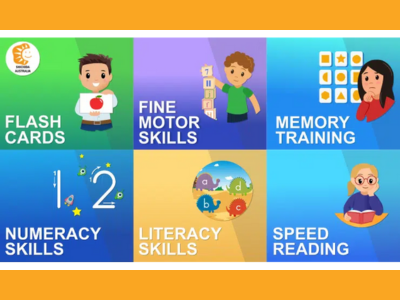Six secrets of the Shichida Method
Discover the Secrets of Early Childhood Education: Six secrets of the Shichida Method revealed
To maintain children’s engagement and motivation in early learning activities, Shichida, a pioneer in early childhood education, has devised several techniques. Let’s delve into six secrets of the Shichida Method and explore their benefits for young learners.
1. Flashcards
Flashcards are a popular technique used by Shichida, which involves showing children visual cues to help them remember information. These flashcards can include shapes, colours, letters, numbers, famous places or artworks, animals, and food from across the world. The flashcards are designed to improve children’s visual memory and attention span. The speed at which they are flashed varies according to the age group. Flashcards are a fun and interactive way to introduce new concepts to young learners and help them to retain the information for longer periods. This is the first of the six secrets to help your child. Flashcards are a well researched educational tool with amazing outcomes, if used correctly!
2. Fine Motor Skills
To enhance young children’s hand-eye coordination, dexterity, and overall physical development, Shichida emphasises developing fine motor skills. Engage children in activities like playing games with chopsticks, tracing, drawing, paper folding, cutting, and pasting. These not only provide fun but also foster the cognitive and motor skills development of children.
3. Memory Training
Shichida’s approach to early childhood education includes emphasising memory training. Enhance recall and retention through various memory-enhancing activities and games. Improving memory skills enables children to retain more information, promoting effective learning, increased confidence, and motivation.
4. Numeracy Skills
Numeracy activities are incorporated into Shichida’s approach to early childhood education to help children learn basic mathematical concepts such as counting, addition, and subtraction. Math based activities, songs and games are engaging and fun for young learners. By introducing numeracy at an early age, children can develop a strong foundation in mathematics, which can help them throughout their academic careers.
5. Literacy Skills
Literacy is another critical component of Shichida’s approach to early childhood education. Activities that promote literacy include reading books, storytelling, and learning writing skills, including the correct pencil grip and writing stroke order. These activities help children to develop their language and communication skills, which are essential for success in school and beyond.
6. Speed Reading
Speed reading is a technique that can help children to improve their reading comprehension and overall reading speed. Shichida uses speed reading exercises to help children to read more quickly and efficiently. This can help to keep children engaged and interested in their reading activities, as they can complete tasks more quickly and with greater accuracy.
Shichida Australia
Shichida’s approach to early childhood education emphasises the use of fun and engaging techniques to keep children motivated and interested in their learning activities. By using these six secrets of the Shichida Method, parents can help young learners to develop strong foundations in key academic skills, setting them up for success in school and beyond.
Visit this page to see what we teach at Shichida Australia.
